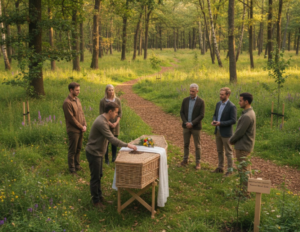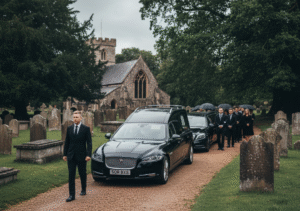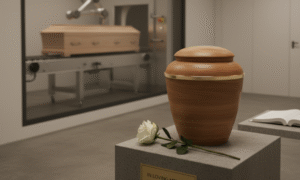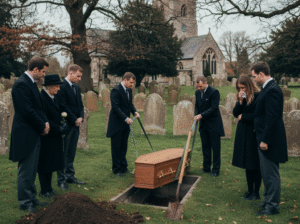Selecting a coffin or casket is one of the most significant decisions in funeral planning. In the UK, the variety of choices — from traditional wooden designs to eco-friendly alternatives — allows families to find something that reflects both personal values and the character of the person being remembered. This guide covers the differences between coffins and caskets, material options, style variations, and the growing trend towards ethical and sustainable choices.
1. Coffin vs. Casket: Understanding the Difference
- Coffins: Typically six or eight-sided and tapered at the head and foot, offering a classic British look.
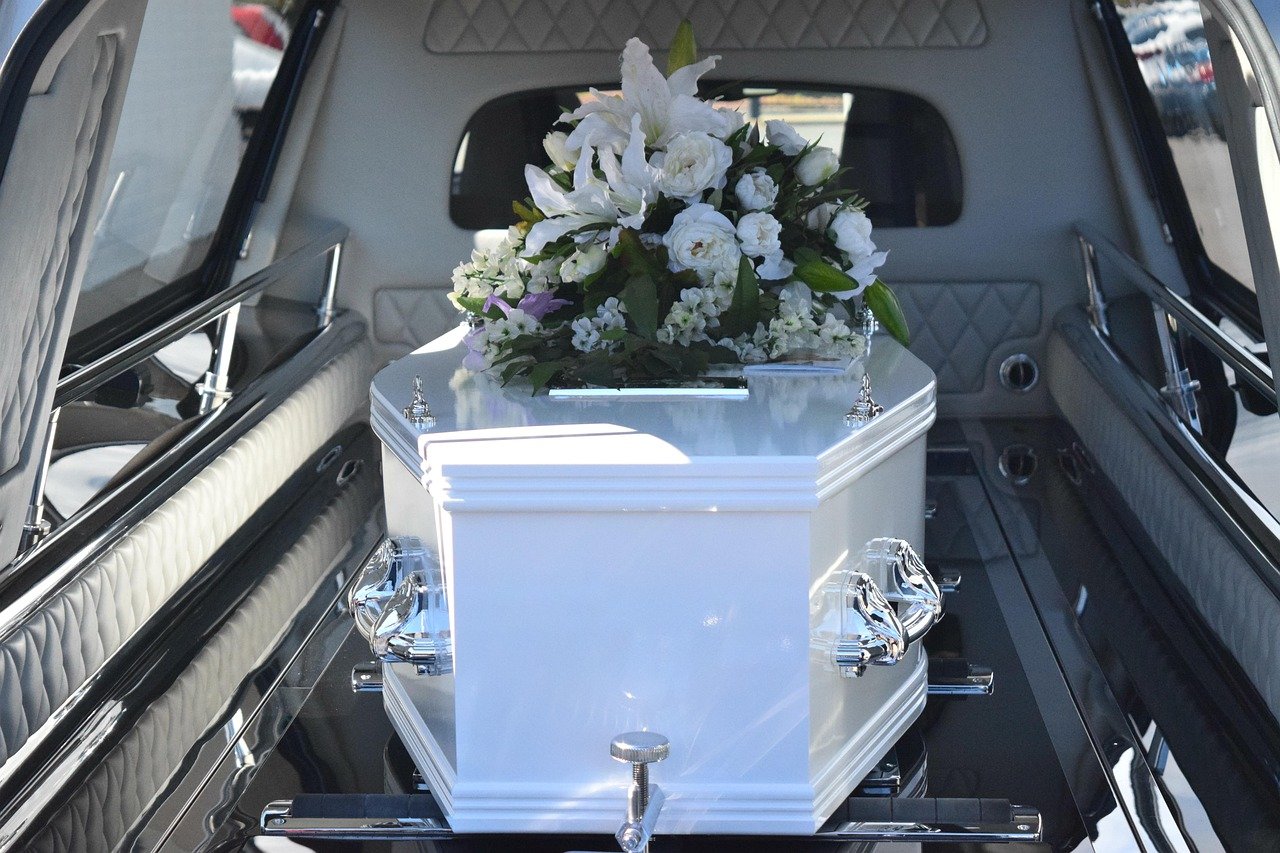
- Caskets: Rectangular in shape with a hinged lid, more common in American-style funerals but increasingly available in the UK.
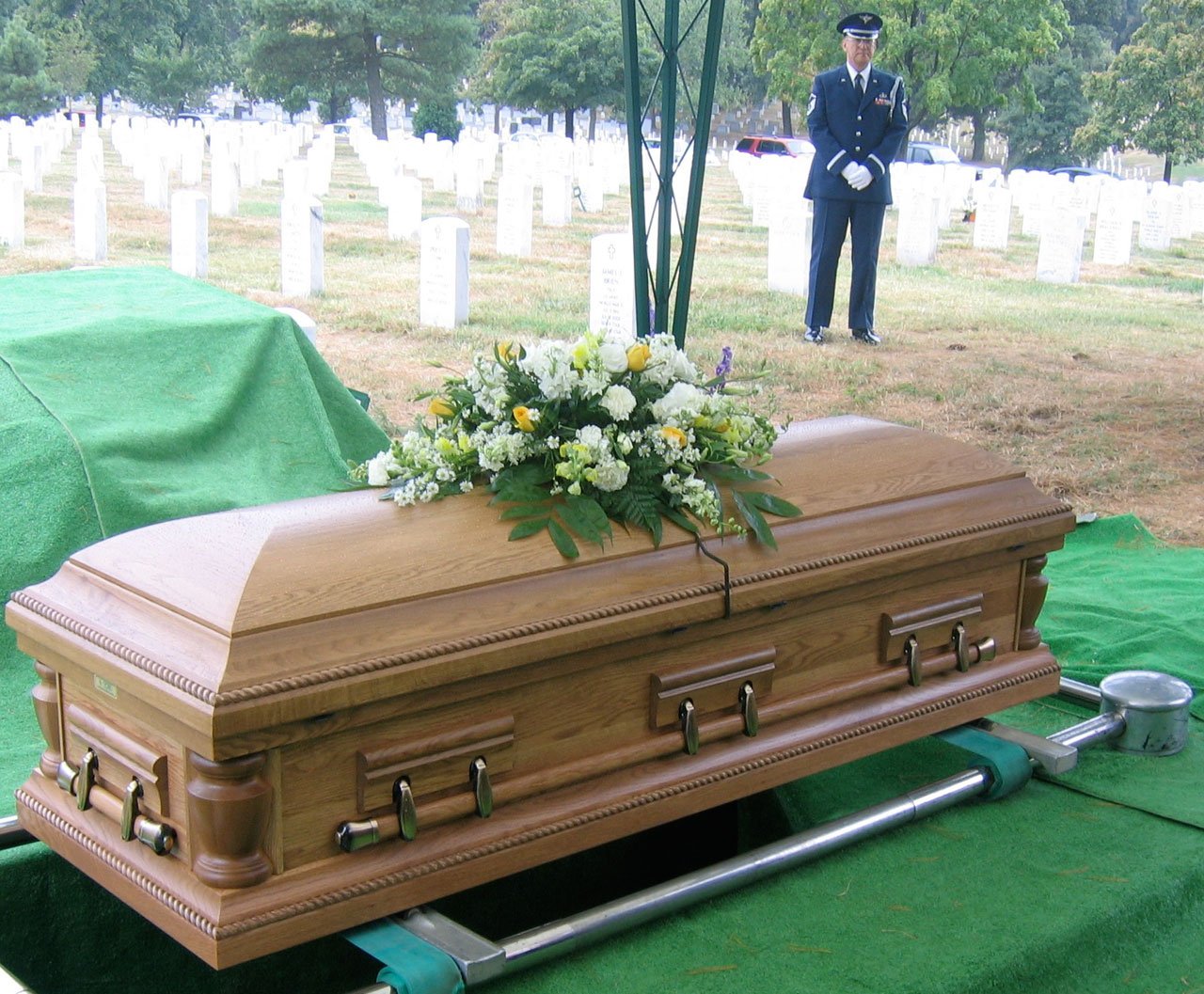
Your choice may come down to tradition, aesthetics, or service style. Viewing both in person can help you decide which feels most appropriate.
2. Material Options
Traditional Woods
- Solid woods such as oak, mahogany, and pine remain popular for their strength and timeless elegance.
- Veneered wood provides a similar appearance at a lower price point.
Modern Alternatives
- Engineered boards like MDF or chipboard with wood-effect finishes for budget-conscious choices.
- Natural fibres like wicker, seagrass, and bamboo offer a softer, organic appearance.
- Cardboard coffins are lightweight, cost-effective, and often biodegradable.
3. Styles and Personalisation
- Traditional Finishes: Plain or polished surfaces, simple handles, and classic interiors.
- Personalised Designs: Engraved nameplates, embroidered linings, painted or printed imagery that reflects hobbies, landscapes, or beliefs.
- Colour Choices: From deep wood tones to white, pastel, or bold custom colours.
Personalisation adds meaning but should align with the funeral setting, whether it’s burial, cremation, or a green funeral.
4. Ethical and Eco-Friendly Choices
The UK has seen a growing interest in environmentally responsible funerals. Options include:
- Coffins made from FSC-certified wood from sustainable forests.
- Fairtrade-certified wicker and bamboo.
- Fully biodegradable coffins free from metal fittings and chemical varnishes.
- Cardboard coffins printed with water-based inks.
For cremations, avoid materials that release harmful emissions — your funeral director can guide you towards suitable eco-conscious options.
5. Cost Considerations
Prices vary widely based on material, craftsmanship, and customisation.
- Budget Range: Cardboard or basic veneer coffins from £200–£500.
- Mid-Range: Veneered wood or wicker from £600–£1,500.
- Premium: Solid hardwood caskets with bespoke interiors upwards of £3,000.
Discussing budget openly with your funeral director ensures you receive dignified options without financial strain.
6. Viewing Before Purchase
Photographs can help narrow choices, but seeing a coffin or casket in person allows you to:
- Assess craftsmanship and materials.
- Compare sizes, shapes, and finishes.
- Ask about suitability for burial or cremation.
Your funeral director can arrange a private viewing and explain all relevant details.
7. Making the Right Choice
When choosing, consider:
- The wishes and personality of the deceased.
- Cultural or religious traditions.
- Environmental values.
- Practicalities such as cremation requirements or burial plot dimensions.
Conclusion
Choosing a coffin or casket is a deeply personal process that balances tradition, individuality, and ethics. With so many materials, styles, and eco-friendly options now available in the UK, families can find something that feels truly fitting. Whether you prefer a traditional solid wood coffin, a personalised design, or a fully biodegradable choice, the right option can help create a meaningful farewell.
Gooding Funeral Services can guide you through every step, ensuring the coffin or casket you choose reflects your loved one’s life, values, and personality with dignity and care.
Read more from our guide on funeral services in the UK.
Pages You Might Like:
Funeral directors UK, Funeral services UK, Funeral Services in Leeds, Funeral directors Leeds, Funeral Directors in Bradford, Funeral Directors Bradford, Funeral Directors Manchester, Funeral Directors Huddersfield, Funeral Services in Doncaster, Asian Funeral Services, Hindu Funeral Services, Sikh Funeral Services, Caribbean Funeral Service


